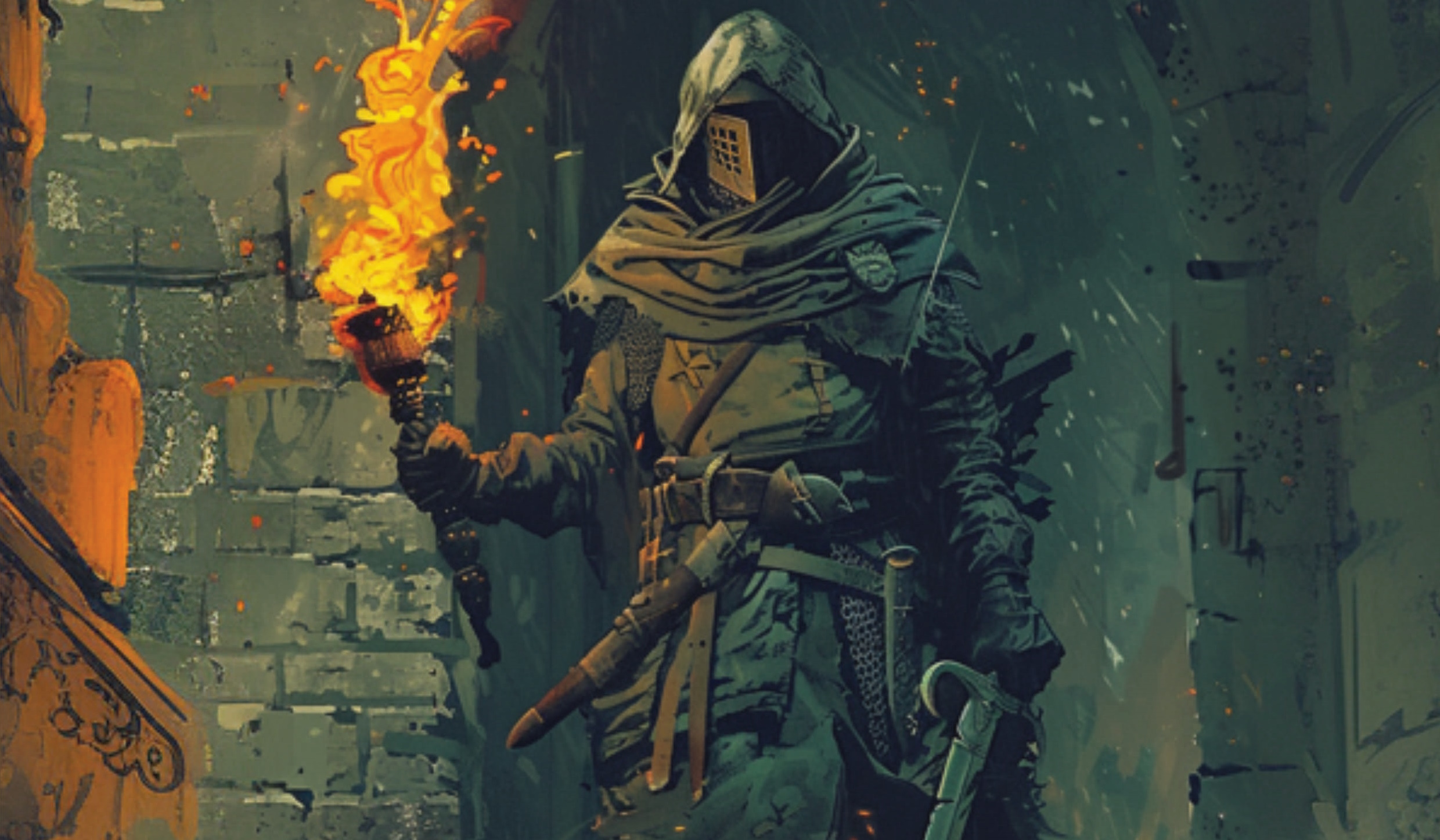What are RPGs? And is our hobby really dying?
I know, that’s a controversial topic and a lot of subjectivity is involved in the discussion. If you ask ten pen & paper roleplaying games fans you’ll probably get at least a dozen different answers, some might even be totally contradictory. Yes, defining our hobby is difficult and has become more difficult over the years.
In the early 70s things were easy. What is a pen & paper RPG? D&D! There was only one (published) game of the kind and it defined the genre for quite some time. But nowadays we have pen & paper games that diverged from the D&D formula and still were called roleplaying games. Over the years other names have been used like storytelling games, but in a way it was not really a new genre but still part of what we felt was part of the roleplaying hobby.
LARPing is quite popular and I would definitely say it’s at least closely related to pen & paper roleplaying games. There are certain board games (like Descent) and computer games (like the various MMOs, and console/PC roleplaying games) which share several mechanical and conceptual elements with pen & paper roleplaying games. But I wouldn’t include these games in my personal definition of roleplaying games.
Roleplaying games as per my definition are social games in which players impersonate fictious characters which they portray through speech, sometimes adopting certain mannerisms, which are the protagonists in a story which is created by the actions of said characters. There are also certain rules which come into play especially if the outcome of an action has a chance of failing or adding a complication to the story. There’s no winning condition in itself, even if the characters may reach certain goals, but the shared creative experience is the reward in itself.
I don’t count computer roleplaying games as “real” roleplaying games since the story is pretty much scripted. The ability of the players to influence the outcome is severely limited by what the programmers implemented in the first place. I don’t consider certain boardgames because acting out the character is usually not part of the gameplay.
Sure, you can roleplay in games like Diplomacy, too, but it’s not what’s necessary for the experience. On the other hand, if you leave out playing a role in a game like D&D there’s actually only soulless combat left which could be fun in itself, but it’s only part of the experience.
Many kids games like Cowboy and Indian, Cops and Robbers etc. are very crude forms of roleplaying, but usually don’t have any set rules. But it shows that it’s almost natural for humans to take part in games in which the players take on the mantle of someone else. Roleplaying games often add some tactical elements in the form of combat, a set of rules and a game master, but in the end it is still a closely related experience and probably better suited for adults.
Roleplaying as a hobby is a niche hobby and probably will always stay there. Roleplaying elements have already reached the mainstream, but it’s mostly mechanical aspects like character progression, tactical elements which RPGs inherited from table-top miniature games, character customization and sometimes even limited choices on how the story shall progress. Today MMOs, console RPGs, even mobile games, scratch a small part of the roleplaying itch. There’s even the idea to change the way we work by adding roleplaying elements to it. You might have heard about Gameification before.
So elements of what we might call roleplaying games will probably live on for a very long time. But what about the pen & paper roleplaying games we all love? Will we still play D&D, Vampire, Fate, Gurps, Dungeon World, etc. in 30 years. Yes and no. I guess the most of us who play these games in their 30s will probably be playing for most of their lives. Some of us might even manage to inspire their children to do the same. But many other forms of gaming are more accessible and more well-known than RPGs. I am pretty sure that most kids don’t even know what pen & paper roleplaying is. So in the long run the classic pen & paper roleplaying community will become smaller and smaller, but I am confident that a small group of people will keep the hobby alive for a long time.
Can we actually do something to reverse that trend? I am not sure. But we can help to support people interest in keeping the hobby alive by talking and writing about it, by releasing games which are more easy to pick up and play, which are better suited for players and GMs with work 40 hrs/week, or which are aimed at young players who already know computer RPGs and MMO and are looking for something which allows them to leave the rails and experience their own stories. There are way less roleplayings than in the ‘80s, but there’s still no reason for despair. The creativity and productivity of the community is as strong as it has never been before and the internet allows players from all over the world to share their love of the hobby and play together. RPGs are far from dead, but the days of huge roleplaying publishers like TSR back in the day are over.
What are your thoughts on this? Please share your ideas, comments and critique below. As always every comment is highly appreciated.



4 comments